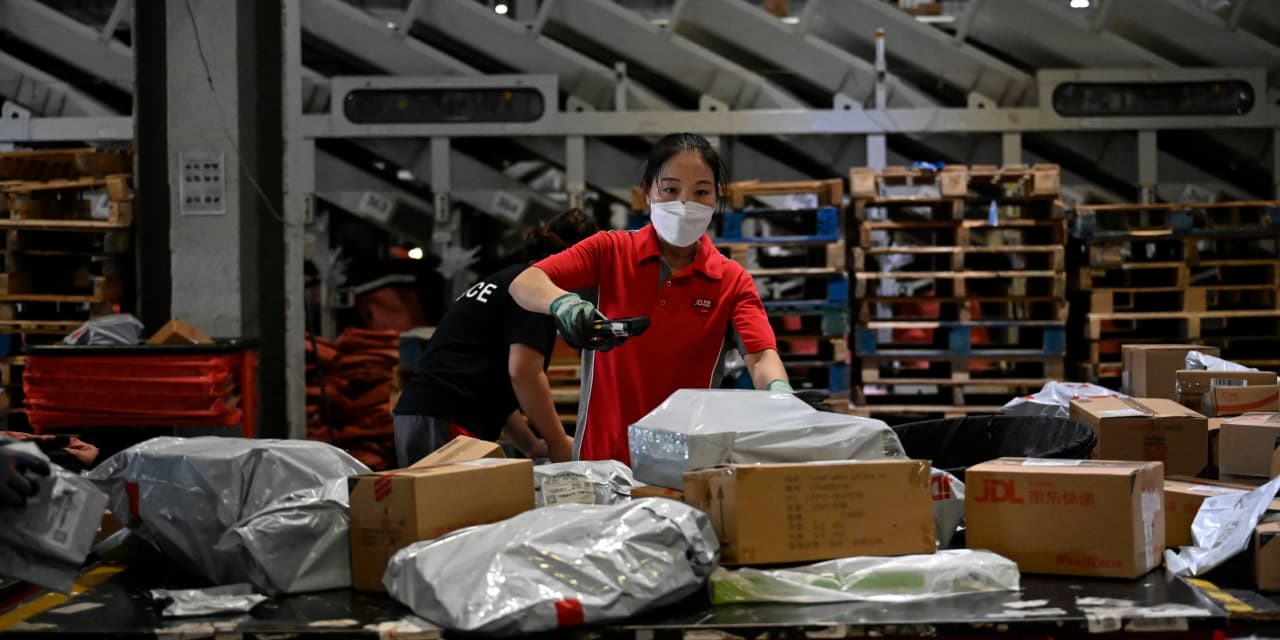Whimpers of growth in China after months of malaise haven’t convinced many consumers, experts, and investors that the economy is getting stronger.
Barron’s has tracked sentiment throughout the postpandemic period through follow-up conversations with a number of consumers and small businesses. The upshot is that they don’t see their financial situations improving.
“For myself and most of my friends in this area, we just aren’t as busy as we were before the pandemic,” Xiao Gai, a 32-year-old art director from the western metropolis of Chongqing, said in a telephone interview.
Asked if factors like the explosion of AI tools might account for her reduction in client requests, Xiao said: “Everyone’s using AI to some degree. But it’s more about lower budgets among clients I’ve talked to, which results in smaller projects for us.”
Guo Qingfeng, an IT worker at a large tech firm in Beijing’s “Silicon Valley,” known as Zhongguancun, said promotions have been frozen at his company since April, roughly the time it started to become apparent that China’s economic rebound was a blip, at best. “Workloads have increased, but pay hasn’t,” he said.
The massive property market’s refusal to respond to stimulus measures continues to be a drag on the economy. Property prices fell the most in eight years in October, with new-home prices in 70 cities declining 0.38% last month from September’s 0.3% decline, data from the National Bureau of Statistics showed on Thursday.
That was despite a number of policy support measures, including lowering down payments for homeowners and requiring lenders to reduce mortgage rates in September.
Beijing said it plans to supply at least 1 trillion yuan ($138 billion) of financing for affordable housing programs. But temperature measurements across other sectors aren’t offering a clear prognosis.
The much-watched consumer sector performed better than expected for the second month in a row in October, official data this week showed. Last month’s 7.6% year-over-year growth in retail sales beat market expectations of 7%. But much of that was due to a low base effect from last year. How much is actual growth is tough to measure.
Private surveys of consumer demand and business sentiment show pessimism. Sentiment among private firms declined in October in a poll from the Cheung Kong Graduate School of Business.
Consumer demand for recreation and transport also slid slightly last month in data from French fintech research firm QuantCube Technology.
Markets seem confused as ever. April’s weak data also market a bear run for mainland and Hong Kong indexes, with the large-cap CSI 300 down nearly 8% and the Hang Seng Index off 11.8% for the year.
An uptick in October was attributed mainly to investors buying on what was perceived to be a bottoming out. But markets have only fallen since Wednesday’s forecast-beating numbers for retail sales and industrial production.
Part of that is because China’s ongoing deflation means that rises in output and export volumes are nearly meaningless if their prices fall.
“Chinese markets have done terribly because China’s economy looks terrible, obviously. And Hong Kong, which is composed mainly of mainland Chinese firms, is essentially a proxy for China,” said Doug Young, director of Hong Kong-based Bamboo Works, which provides analysis on Chinese companies listed in the city.
The ongoing trickle of policy support—mostly aimed toward infrastructure and property sectors—so far has maintained a tentativeness among experts and investors.
The International Monetary Fund cited the promise of continued measures through the end of the year as the reason for upgrading its forecast for China’s 2023 economic growth, to 5.4% from 5%.
“The authorities have introduced numerous welcome measures to support the property market,” IMF deputy managing director Gita Gopinath said in a statement. “But more is needed to secure a quicker recovery and lower economic costs during the transition.”
Others are equally equivocal. The latest data show continued weakness, but things could have been worse, said Sheana Yue, China economist at Capital Economics. But growth remains worrisome enough that supportive policy measures could be stepped up, she said in a note.
But for some, China’s troubles are clearer, because they are systemic.
“The problems facing the Chinese economy aren’t the consequence of recent policy shifts,” said Beijing-based economist Michael Pettis. “They are the almost inevitable result of deep imbalances that date back nearly two decades and were obvious to many economists well over a decade ago. They are also the problems faced by every country that has followed a similar growth model.”
Read the full article here







